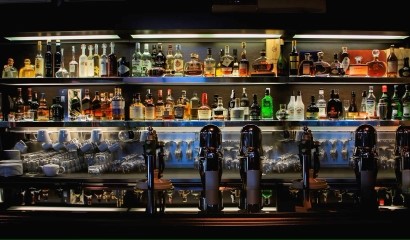European restaurant market remains challenging, but exceptions whet investors’ appetites — Dealspeak EMEA
Private equity (PE) firms are often tempted to walk past European restaurant deals, but there are still exceptions that can attract a buzz.
In recent years, the restaurant sector across Europe (including the UK) has faced unprecedented challenges, including the impact of prolonged lockdowns to fight COVID-19. Rising energy costs since the Russian invasion of Ukraine in 2022 have also hurt the sector.
Market conditions remain difficult, with valuations under pressure. Yet, standout opportunities, with premium assets and innovative concepts, still continue to draw strong interest from investors and customers alike, dealmakers said.
“Private equity interest remains pretty lukewarm overall in the sector, with consumer specialists only really being tempted by A-star assets”, Sam Fuller, managing director in Houlihan Lokey’s Consumer Group, said.
Mergermarket data tracks 2,917 restaurant deals in Europe’s dining and lodging – restaurants segment since the 1990s. Of these, 96 have disclosed an enterprise value (EV)/EBITDA ratio, with a median ratio of 10.38x. This ranges from 7.39x in the first quartile to 16.65x in the third quartile.
In the past, the sector has typically traded between 8x and 10x EBITDA, Fuller said. These days, pricing is very much on the bottom end of that range, he said, adding that much of the sector would “gladly” sell at 8x if there was appetite at this level.
At the same time, traditional restaurants are facing tough competition from new models, such as delivery apps, ghost kitchens, and digital-first brands. It is the restaurants with attractive price points and disruptive concepts that are generating the highest investor interest, Fuller said.
An example of a premium deal came earlier this month when McWin Capital Partners, a specialist PE and venture capital (VC) firm dedicated to the food ecosystem, and TriSpan, a global PE firm with a dedicated restaurant fund, announced that they had partnered to secure a co-control majority investment in FI Holdings (Flat Iron)
The target offers high-quality steaks with accessible pricing. It stands out as “a clear winning brand”, delivering outstanding value to a wide range of guests, one of the investors said.
In the year-to-date (YTD), there have been 152 deals across the European hospitality sector*, down 5% on the year, according to Mergermarket data. July has been the busiest month of the year so far, with 20 transactions.
The total value of deals that disclosed financial metrics was EUR 2.2bn in YTD25, down 62% from YTD24.
The largest deal in the YTD has been the takeover of Vermaat Groep, a Dutch hospitality services provider, by strategic investor Compass Group for EUR 1.5bn, announced in July. The target is also a premium player. This single deal accounts for almost 69% of the disclosed value in the YTD.
Distinction
A common theme across the deal announcements in the YTD is words like “distinctive” and “exceptional” in the deal announcements to differentiate the target from the rest of the sector.
For example, Nordrest highlighted the “distinctive” location of Restaurant Brahehus overlooking Lake Vättern and alongside Sweden’s busiest highway in September.
In August, L Catterton, a US PE firm, acquired a stake in the UK-based Indian restaurant operator Dishoom, and described it as “truly exceptional”. The company plans to open a restaurant in the US in 2026, and the fresh capital will help finance new market launches.
The US hospitality market is widely regarded as the most advanced, offering the highest sector penetration and the greatest diversity of brands. The UK follows closely behind, with the rest of Europe trailing further. However, this also creates upside on the continent, Fuller said. “[This is] not necessarily a bad thing as it is less competitive and there remains scope to disrupt and innovate.”
When it comes to categories, quick-service restaurants (QSR) are seen as the most attractive to investors, followed by fast-casual dining, Fuller said. “This reflects a growing sentiment amongst investors that the younger consumer wants a combination of value, experience and speed.”
Meanwhile, there is also distressed activity at the lower end of the market. For example, in July, Cherry Equity Partners bought Gusto, a UK-based chain of Italian restaurants as part of a pre-pack administration process.
Meanwhile, Partners Group, the owner of the Cote chain of eateries, is reportedly considering a cash injection to fund a turnaround that would probably include closing sites.
Slow processes
Several exit processes have yet to progress. Among those that have stalled or gone quiet are the proposed sale of UK premium steakhouse chain Hawksmoor, majority-owned by Graphite Capital. It was said to be entering the market last year.
Meanwhile, Richard Caring, a UK-based restaurant and club owner, was reportedly in advanced discussions with IHC about a potential USD 1bn (GBP 750m) sale of a stake in his businesses, in May.
In more recent activity, The Coca-Cola Company was reported in August to have appointed Lazard to handle discussions with potential buyers of its Costa coffee retail business. It is said to be attracting PE interest.
The two-tier dynamics of the market are set to persist, with private equity crowding around the most disruptive restaurants while overlooking the mundane.
*The dataset includes breads and bakery products, food service contractors, mobile food services, restaurants










